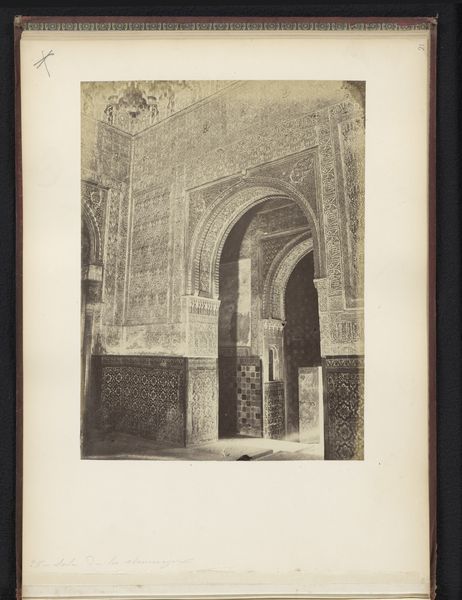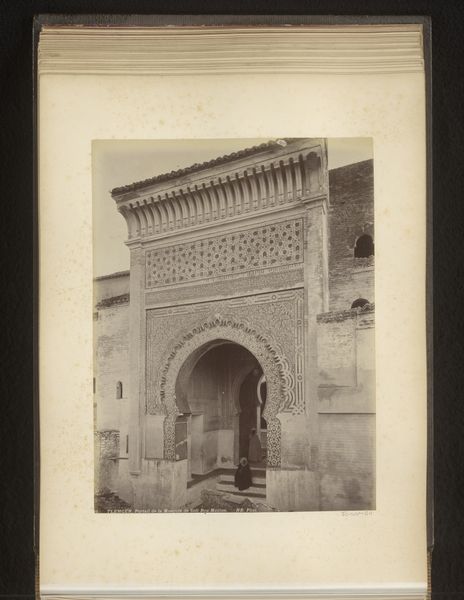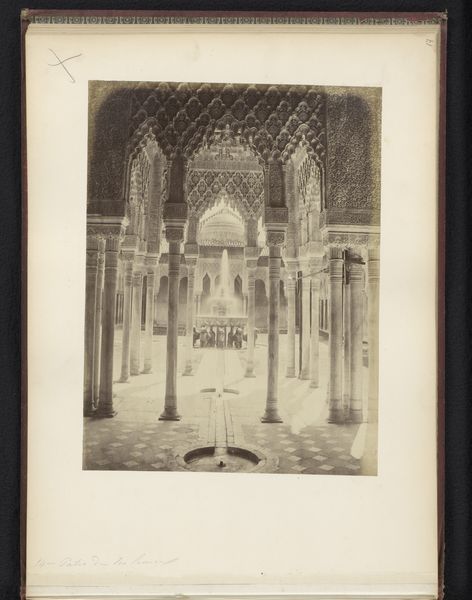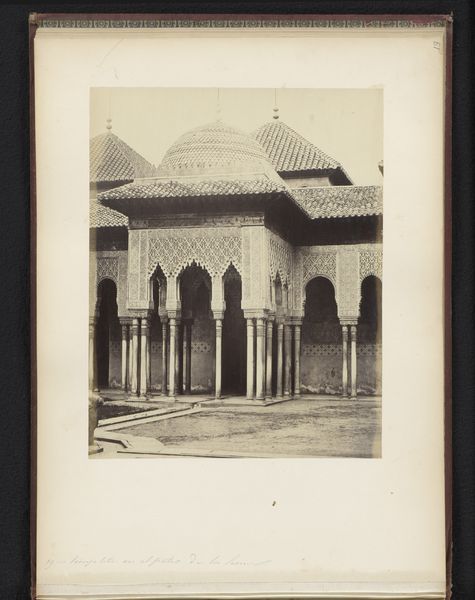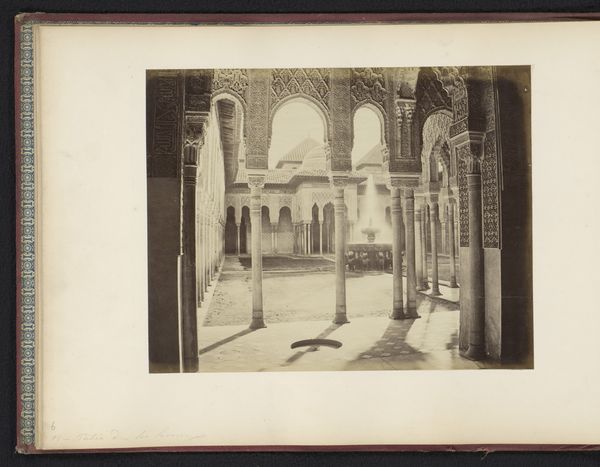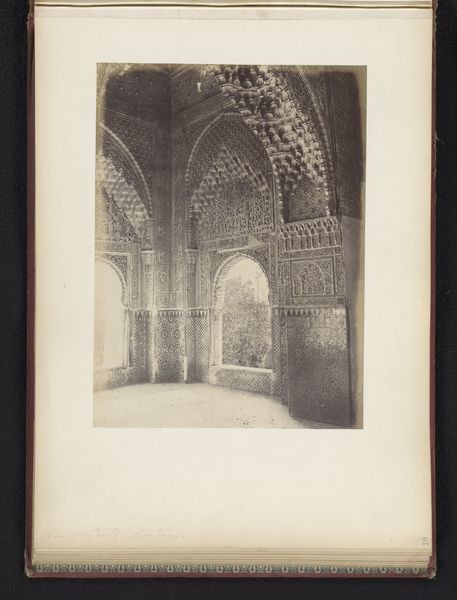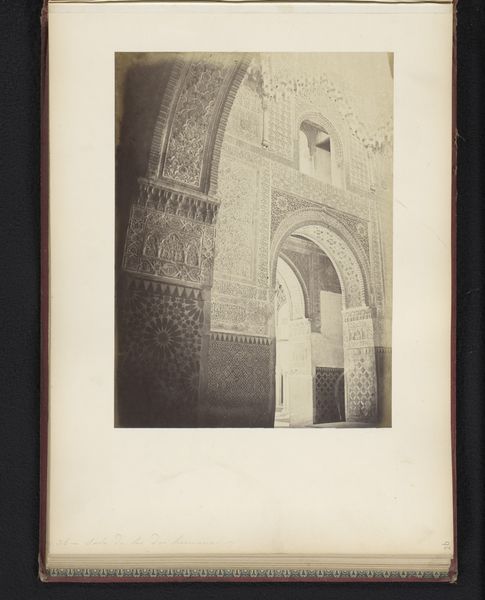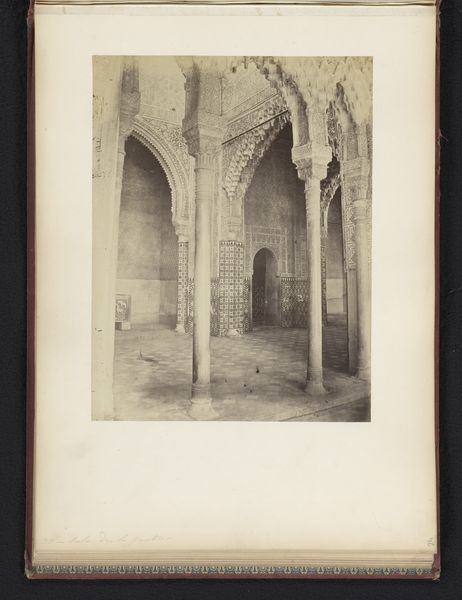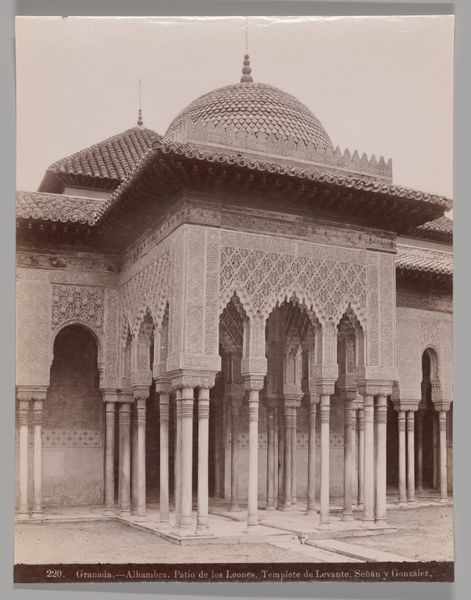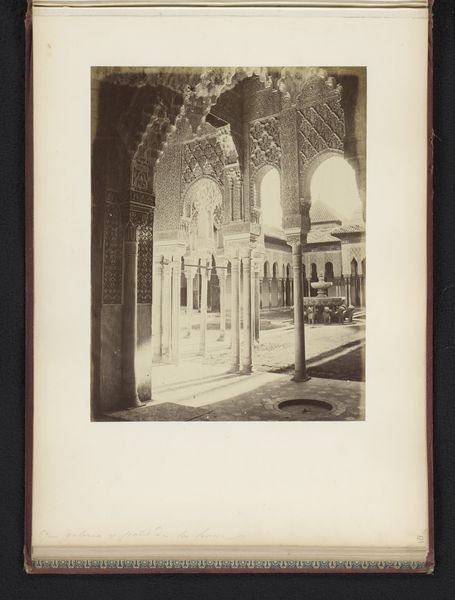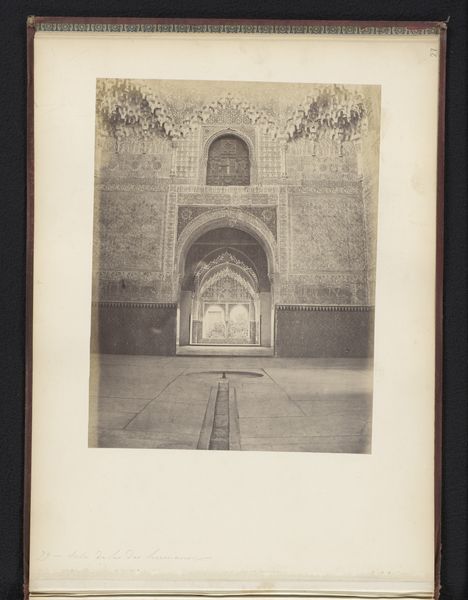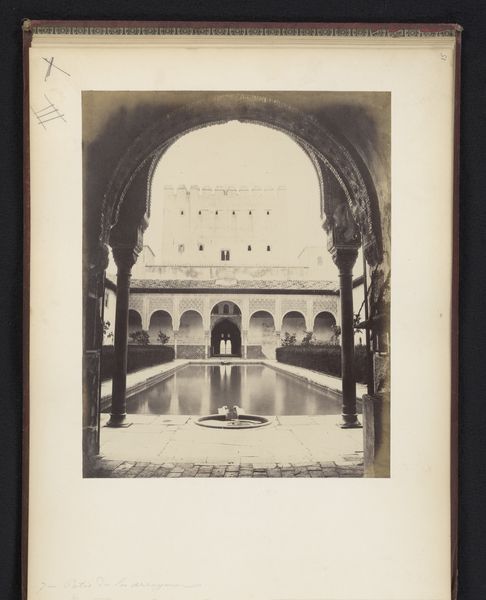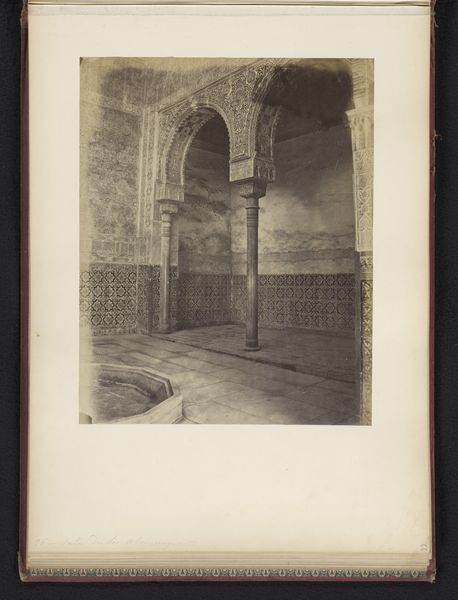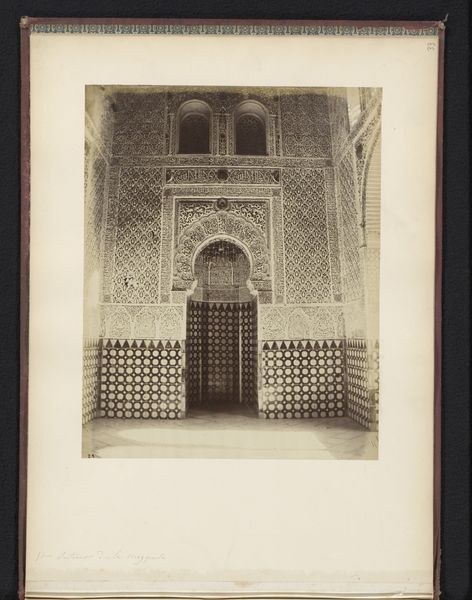
Gezicht op een galerij rondom de Leeuwenhof in het Alhambra te Granada, Spanje 1906
0:00
0:00
photography, architecture
#
landscape
#
photography
#
orientalism
#
islamic-art
#
architecture
Dimensions: height 237 mm, width 190 mm
Copyright: Rijks Museum: Open Domain
Editor: This is a photograph from 1906 by C Maufsaise entitled "View of a Gallery around the Lion Courtyard in the Alhambra in Granada, Spain". It’s… strangely compelling. There's so much intricate detail, but it’s presented almost clinically. What stands out to you? Curator: I'm interested in the material translation happening here. We have the incredibly ornate, handcrafted surfaces of the Alhambra – tile, plasterwork, wood – captured by the reproducible medium of photography. Consider the labor invested in the architecture itself, generations of artisans crafting those surfaces versus the relatively instantaneous process of image capture. Editor: So, the photo almost flattens the labour that went into building the Lion Courtyard? Curator: Exactly. And we also have to consider the materiality of photography itself. This is likely an albumen print, using egg whites to bind the photographic chemicals to the paper. What does that say about the materials employed to represent another space? What is preserved, and what gets lost in translation between material forms of architecture, craft, and photography? The soft focus further removes the photograph from an illusion of direct representation and turns it into a representation of the experience. Editor: That makes me wonder about how this image would have been consumed. It feels almost like a souvenir, or documentation. Curator: Indeed, consider who commissioned this photograph, and how they might have intended to use it. It might circulate as a signifier of wealth, colonial reach and cultural curiosity, or scholarly interest, documenting an “exotic” site for a European audience. Editor: I hadn’t thought about it that way. It's more than just a pretty picture; it’s about the intersection of labour, materials, and colonial gaze. Curator: Precisely. Examining the physical components and their relationship to the processes helps unlock so much of the context and intent behind the image.
Comments
No comments
Be the first to comment and join the conversation on the ultimate creative platform.
